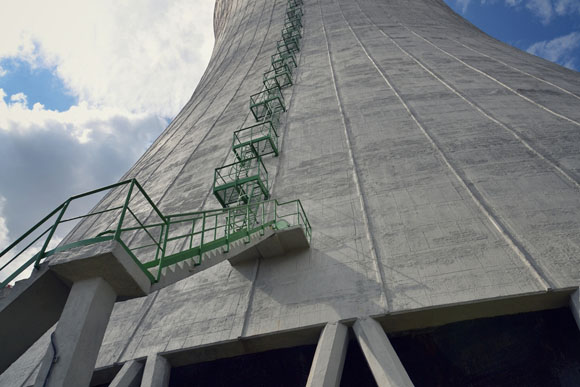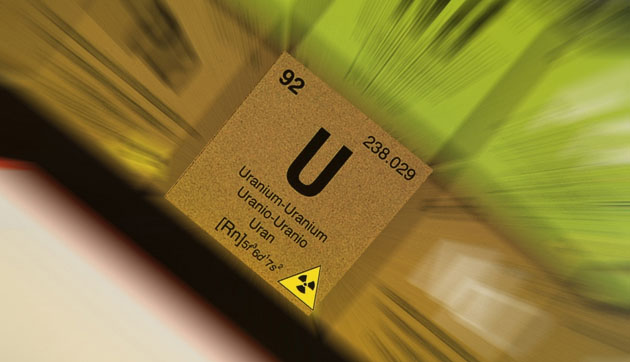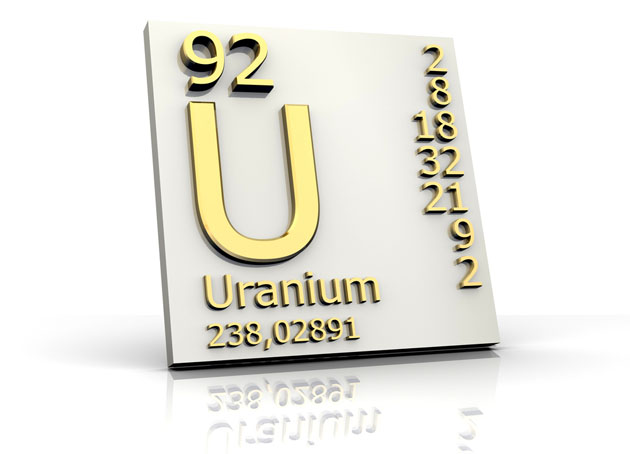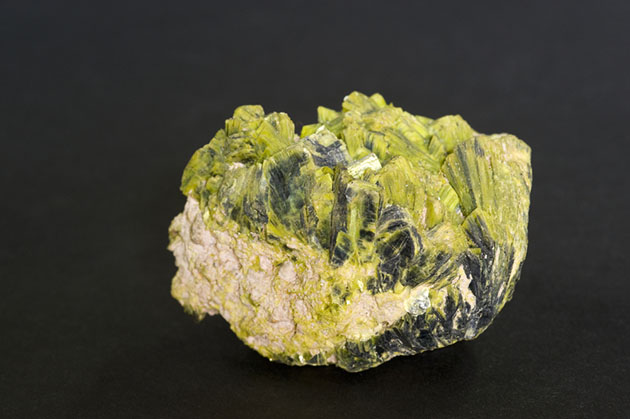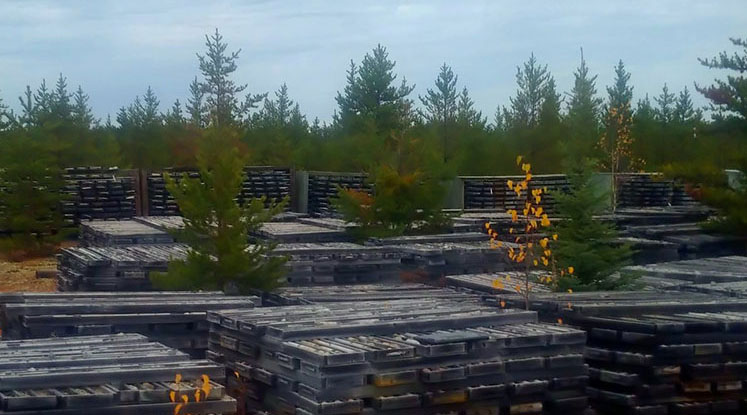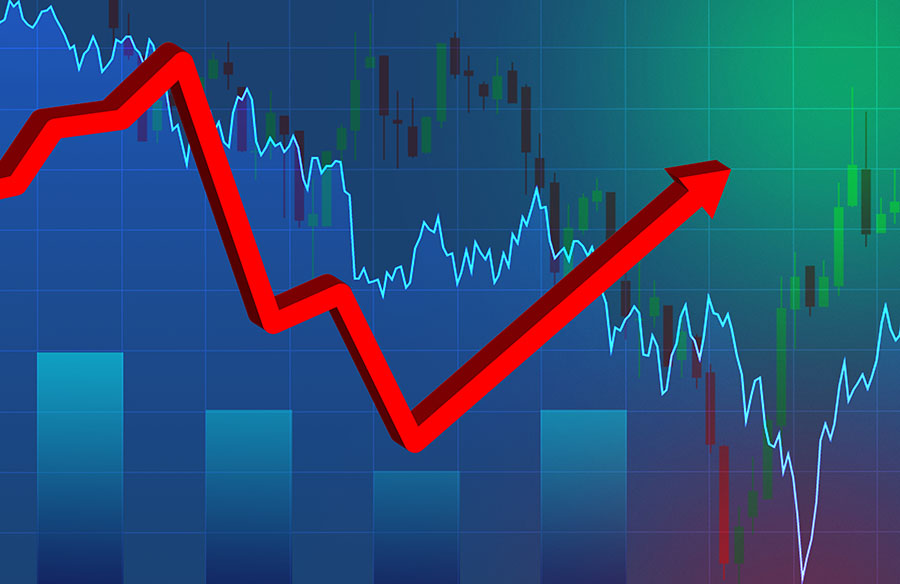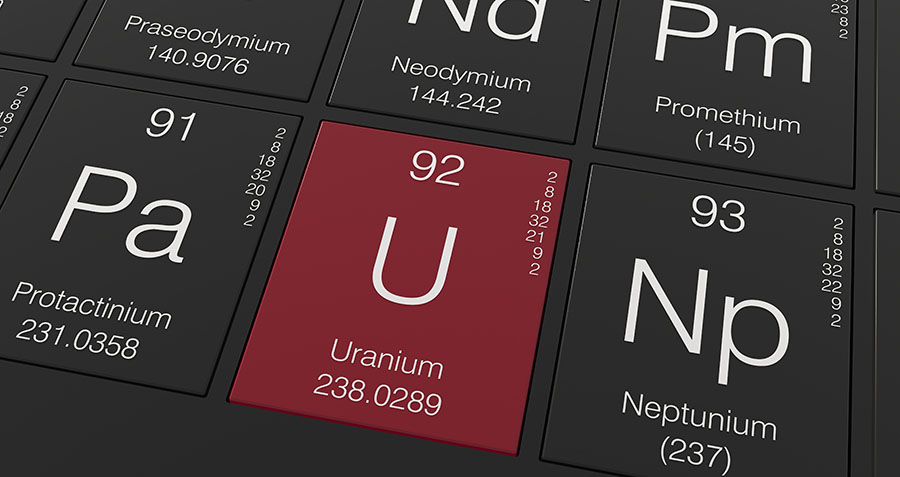Why? First, the 20-year Highly Enriched Uranium (HEU) Program agreement between the U.S. and Russia, aka "Megatons to Megawatts," expires this year.
Second, the end of that program will allow Russia to sell its coveted uranium, which currently powers one of every 10 homes in the U.S., to the highest bidder. With 200 nuclear power plants under construction or on the drawing boards, China is likely to be first in line, with India and even oil-rich Saudi Arabia on its heels.
Third, the increase in nuclear plants being built around the world will stimulate huge demand while supply inevitably dwindles. Because it can take a decade to bring a uranium mine on-line, new mining production can't grow fast enough to meet the demand.
Fourth, like it or not, nuclear energy is clean—while the average coal-fired power plant in the U.S. emits nearly 4 million metric tons of CO2 each year, nuclear power plants emit no carbon dioxide, sulfur dioxide, nitrogen oxides, mercury or other toxic gases.
Finally, last Thursday, an Al-Qaeda splinter group attacked the Somair uranium mine in Niger—owned by French uranium giant Areva. This will further disrupt global uranium supplies and emphasizes what the energy experts have been saying: Uranium is prime for price increases.
Casey Research agreed to share Katusa's segment with Sprott U.S. Holdings Chairman Rick Rule with The Energy Report readers and invites you to listen to the rest.
Marin Katusa: We first met 10 years ago, when you were begging people to buy uranium companies, and the market boomed. Those of us who followed your advice made a lot of money. Are you expecting a replay in that market?
Rick Rule: I think so. The similarities are interesting. At that time, the price of uranium on the market was less than what it cost to produce it, which meant that one of two things would happen: Either the uranium price would go up, or the lights would go out. Those were the only two choices. We're in a situation now where the uranium price on world markets is lower than what's required to bring online the supplies needed to keep the lights on around the world. So once again, either the uranium price goes up, or the lights go out. I think the price will go up.
MK: What can you tell investors who are nervous about uranium? Nuclear power is unpopular. Why should investors expect its feedstock to have this massive bull market?
RR: You make money in financial markets by buying low and selling high, and you can't buy low when something is universally loved and every investor is competing with you. You have to buy things when they are unloved. In natural resources, you can be a contrarian or a victim. You had the good sense of getting into the market when uranium was cheap, and you also had the good sense to get out when everybody else was flocking in. You did what you were supposed to—buy it when it was out of favor and sell it when it came into favor. It's out of favor again. You will make money buying it now and selling again when it returns to favor, because it will.
MK: Are you currently investing in companies that are exploring for and producing uranium in the junior resource sector?
RR: We are. We are investing in the broader junior resource sector because it is universally unloved, and we are specifically investing in the uranium sector. We invest in any commodity where the selling price on global markets is less than the cost of production and where we see ongoing demand. The price has to rise to meet demand.
MK: Considering that China is on its way to building twice as many nuclear reactors as America, India is building theirs and Saudi Arabia—which is so rich in oil and gas—is planning on building 16 nuclear reactors, does that make the argument for uranium better today than it was 10 years ago?
RR: I wouldn't argue that it's better, because the situation 10 years ago was superb. But it doesn't have to be better. A lot of people added a zero to their net worth as a consequence of that market. If they increase their net worth only five times, would that be sufficient?
MK: I think it would. Like uranium, the junior resource sector is not popular. How would you advise people to invest in that sector today?
RR: They have to invest in themselves before they invest in the sector. They have to get educated about natural resources and you don't get educated about natural resources in The Wall Street Journal. These businesses differ from other businesses. You need the courage and the common sense to invest in contrarian fashion. You need to buy out-of-favor sectors and once your thesis has been vindicated and you're feeling smart, you need to sell those sectors. It's very important that you both buy low and sell high. Industry cycles in natural resources are very predictable, and after you discipline yourself, find information sources you can trust and figure out how to use those information sources, you will find the sector extremely generous.
MK: What is the most important factor when you look at a company? When Rick Rule and Sprott write a check with their own money into a company, what's the most important element of that investment decision?
RR: If it's a speculative, junior company, the three most important factors are people, people and people. In the uranium sector for example, when the resource became popular in the middle part of the last decade, there were 500 junior uranium companies but only 20 competent teams.
MK: And of those 500 companies, about 480 disappeared.
RR: Another thing that argues in your favor today is that you're now able to come in and buy companies with $50M market caps that spent $250–300M they raised cheaply during the boom. Those are very attractive propositions.
MK: Can anything derail this nuclear renaissance?
RR: If there's a black swan on the nuclear side, it would be another event like Fukushima, Chernobyl or Three Mile Island. On the financial side, it would be another 2008-style psychotic break. But if that happened, your uranium portfolio would be probably the least of your concerns.
MK: As always, Rick, it was a pleasure. Thank you.
Uranium prices have nowhere to go but up. Rick confirmed that, as do the other experts in the videocast. Listen for the insights from:
- Spencer Abraham, who served as the 10th U.S. Secretary of Energy (2001-2005) during the George W. Bush Administration.
- Lady Barbara Thomas Judge, chairman emeritus of the U.K. Atomic Energy Authority, chairman of the Pension Protection Fund, and U.K. business ambassador on behalf of U.K. Trade and Investment, and is an appointed member of the TEPCO Nuclear Reform Monitoring Committee.
- Herb Dhaliwal, former Canadian minister of natural resources and senior regional minister for British Columbia.
- Amir Adnani, co-founder and CEO of Uranium Energy Corp. (UEC:NYSE.MKT), which operates North America's newest uranium mine; located in South Texas, it's the first new uranium production in the U.S. in seven years.
Casey Research has identified the top three undervalued uranium stocks that you should invest in right now to be well positioned for the coming uranium bull market. Compiled into a special report, Three Must-Own Uranium Stocks, Casey is making this time-sensitive special report available exclusively for viewers of this webinar.
Marin Katusa, an accomplished investment analyst, is the chief energy investment strategist for Casey Research and the senior editor of the Casey Energy Report. He's considered one of the world's foremost energy experts, and regularly offers commentary on energy issues on BNN and other major media outlets.
Rick Rule, chairman of Sprott U.S. Holdings, is part of the team responsible for managing more than $8 billion in resource and commodity assets around the world. Active in natural resource investing for 35 years, he's a recognized expert in mining, energy, water, forest products, infrastructure and agriculture. The Global Resource Investments group of companies he founded became part of the Sprott Group last year.
Want to read more Energy Report interviews like this? Sign up for our free e-newsletter, and you'll learn when new articles have been published. To see a list of recent interviews with industry analysts and commentators, visit our Streetwise Interviews page.
DISCLOSURE:
1) Streetwise Reports does not accept stock in exchange for its services or as sponsorship payment.
2) Marin Katusa: I was not paid by Streetwise Reports for this interview. Comments and opinions expressed are my own comments and opinions. I had the opportunity to review the interview for accuracy as of the date of the interview and am responsible for the content of the interview.
3) Rick Rule: I was not paid by Streetwise Reports for participating in this interview. Comments and opinions expressed are my own comments and opinions. I had the opportunity to review the interview for accuracy as of the date of the interview and am responsible for the content of the interview.
4) Interviews are edited for clarity. Streetwise Reports does not make editorial comments or change experts' statements without their consent.
5) The interview does not constitute investment advice. Each reader is encouraged to consult with his or her individual financial professional and any action a reader takes as a result of information presented here is his or her own responsibility. By opening this page, each reader accepts and agrees to Streetwise Reports' terms of use and full legal disclaimer.
6) From time to time, Streetwise Reports LLC and its directors, officers, employees or members of their families, as well as persons interviewed for articles and interviews on the site, may have a long or short position in securities mentioned and may make purchases and/or sales of those securities in the open market or otherwise.




